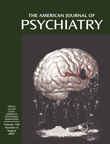Practicing Harm Reduction Psychotherapy: An Alternative Approach to Addictions
This is a great book that has radical reform implications for treating drug users and addicts. Much of what we think and do in the drug use/addictions field is based on assumptions that may be more historical or moralistic than really therapeutic. We are so used to these assumptions that we incorporate them as part of our therapeutic and diagnostic reality and thus do harm to patients and society. The books exposes these assumptions and offers an alternative approach.
The alternative approach is based on thinking from public health, where harm reduction is the goal. The public health approach of giving needles to addicts so they do not use contaminated needles and thus get and spread HIV/AIDS is an example. Addicts have not learned to give up drug use, but harm is reduced, and their lives and society are better for it. Denning advocates a harm reduction approach in treating the addictions. Thus, old assumptions would give way to doing treatment that reduces harm.
If harm reduction is the goal, an addicted patient who learns to use drugs less is a success story, whereas for most therapists this is failure. Also, a woman who stays with a drug addict but learns better ways to deal with the situation is a therapeutic success story, at least in part. According to many traditional ways of looking at the situation, she is aiding him in drug use and should leave the relationship. Further, in harm reduction, you try to help patients, regardless of what they are like. In many traditional approaches, you refuse to do therapy with a drug user unless the user first becomes abstinent. In this traditional approach, many people who cannot or will not give up the drug use are lost from therapy and thus from possible help. Therefore, the harm reduction approach is a radical view for treating drug usage, addictions, and dually diagnosed clients who have both a substance use disorder and a mental disorder.
Denning has the courage to say that many of her previous therapy attempts, before she started using the harm reduction approach, made the patient’s life worse than it was before therapy. She lost drug-using patients who refused to go along with her moralistic, antidrug stances. She lost patients who used drugs but had other problems that they saw as more pressing. Thus, she did little or no good for them and probably did harm. She failed to help people she could have helped if she had been using a harm reduction approach. Of course, she is not alone in this. Many therapists take a rigid, moralistic approach to drug users and either refuse to treat them or put demands on them that will drive them from therapy. One way such patients are driven from therapy—if not rejected in the first place by the therapist—is an overemphasis on drug use as the problem and an underemphasis on other psychological problems. Often, the patient believes that their drug use is not the major problem. Sometimes they are right. Even if they are wrong, demanding drug abstinence or demanding that they focus more on drug use is like making an interpretation the patient is not prepared to hear. Bad timing, bad therapy.
I once had a patient in a prison treatment program. He was about to be released, and I was seeking a treatment place for him that would deal with his problems of schizophrenia and drug use. But the places that dealt with mental illness wanted nothing to do with a drug user. And the places that dealt with drug users wanted nothing to do with schizophrenia. If the places had been more in tune with a harm reduction approach, they might have seen my patient as a human being who could profit from what they had to offer.
Denning offers insights about assessment and treatment of people who use drugs or who are addicted. This is a very important book, providing new ways of looking at things in an area where there is a lot of pessimism. The pessimism is likely due, in large measure, to the assumptions about treatment of drug users that we currently hold, and which are just wrong, according to this book.



